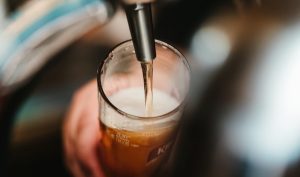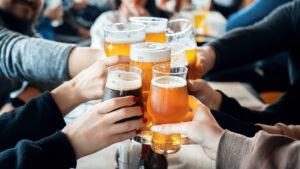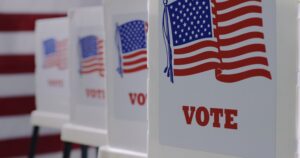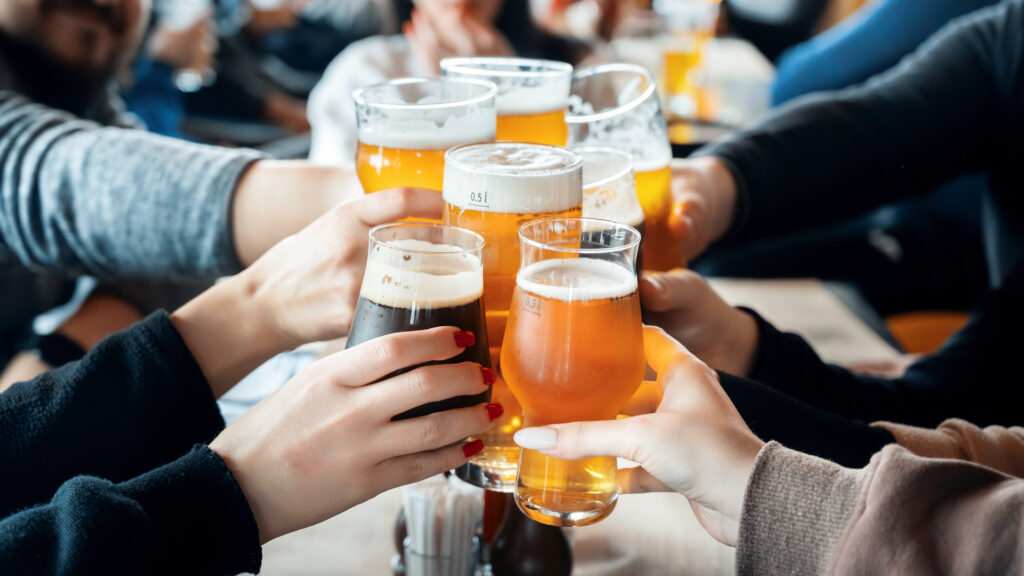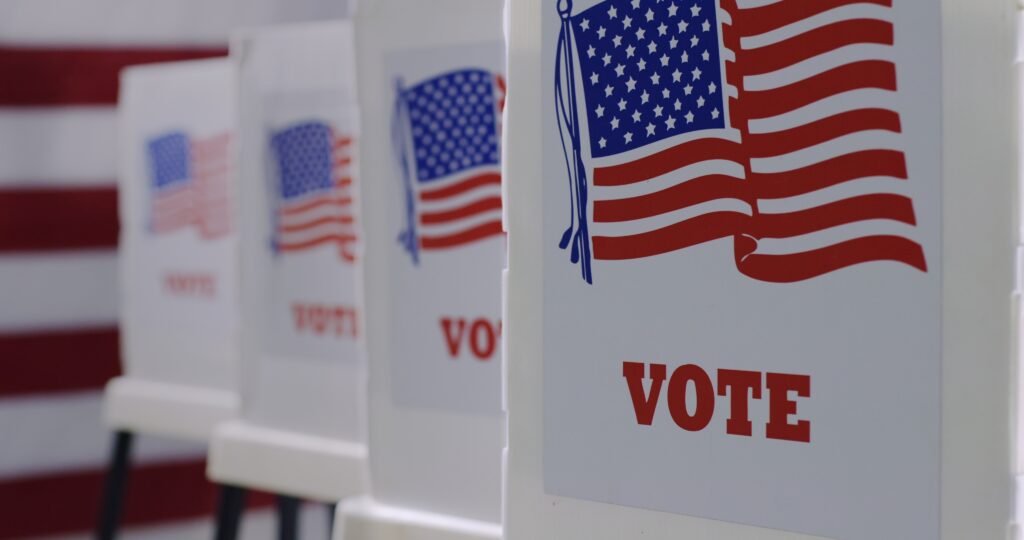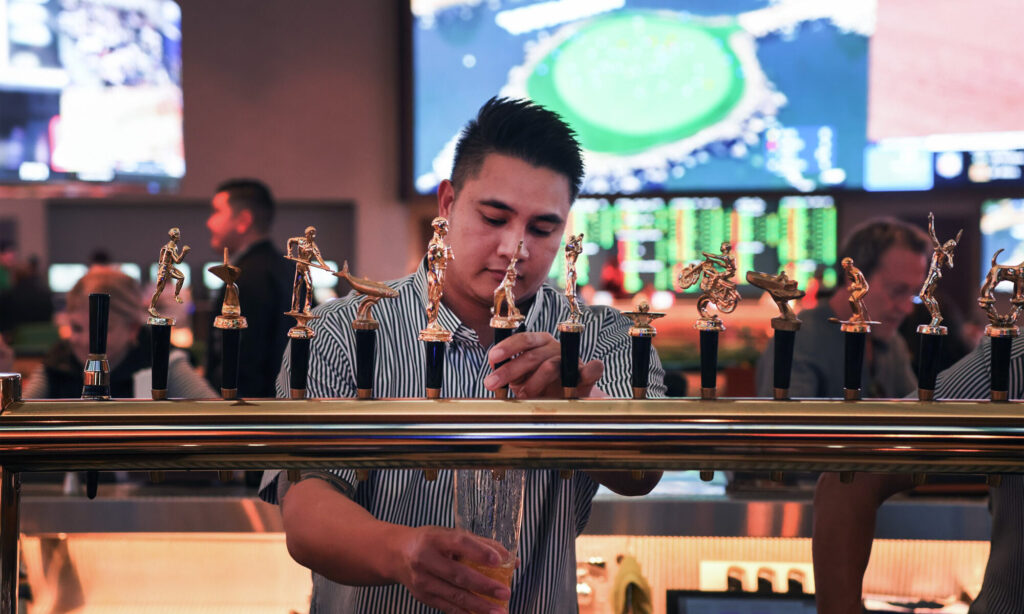651,000 Jobs Supported by U.S. Beer Industry to be Lost Due to COVID-19 Pandemic
By year’s end, the COVID-19 pandemic will result in a $22 billion drop in beer sales
Today, the Beer Institute, the Brewers Association, the National Beer Wholesalers Association and the American Beverage Licensees released a report from a leading economic firm showing more than 651,000 jobs supported by the U.S. beer industry will be lost by the end of the year due to the COVID-19 pandemic. These job losses include more than 3,600 brewing jobs, 1,800 distributing jobs and 400,000 retail-related jobs.
The report forecasts the COVID-19 pandemic will result in retail beer sales declining by more than $22 billion.
“Although millions of Americans continue to enjoy beer responsibly every day, because of the COVID-19 pandemic, the beer industry has seen a dramatic decline both in sales and jobs that rely on our nation’s most popular alcohol beverage,” said Jim McGreevy, president and CEO of the Beer Institute. “We hope policymakers consider that our nation’s brewers and beer importers are having to make difficult decisions to adjust for the impact of the COVID-19 pandemic. Members of Congress should pass legislation to ensure our nation’s beer industry does not face a $154 million annual tax increase next year, and state legislatures should not raise taxes on the beer industry to resolve budget shortfalls. These tax increases will only result in additional job losses for our nation’s brewers and beer importers and the millions of American’s whose livelihood depends on them.”
“Small and independent craft brewers, brewpubs, and tap rooms are in nearly every congressional district across the nation and are vital contributors to their communities, and they directly employ more than 160,000 workers,” said Bob Pease, president and CEO of the Brewers Association. “Right now, these small businesses are struggling under severe financial and operational limitations to make payroll, continue production and serve their customers. Making a bad situation worse, these businesses face a second looming crisis: an increase to their federal excise taxes in 2021 – less than four months from now! If Congress doesn’t enact the Craft Beverage Modernization and Tax Reform Act (H.R. 1175/S. 362), businesses that are already struggling will face higher federal excise taxes, causing some businesses to close their doors permanently and threatening tens of thousands of jobs.”
“America’s beer distributors have been working nonstop to keep the nation’s supply chain and economy moving while facing unprecedented challenges during the COVID-19 pandemic,” said Craig Purser, president and CEO of the National Beer Wholesalers Association. “The abrupt, forced shutdown of bars, restaurants, hotels, arenas and more during the busy spring season left at least $1 billion of perishable draft beer stranded in the marketplace and unable to be sold. In addition to this significant financial loss, beer distributors have seen their operating costs skyrocket as they have made substantial investments to keep their workforce and customers safe during this global health crisis. The beer industry will continue to face difficult headwinds as we navigate this crisis that is still unfolding.”
“Even though the vast majority of bars and package stores have diligently followed COVID-19 regulations and guidelines so they can continue to serve their customers and communities, the unfortunate truth is many beer retailers have been forced to lay-off employees or close their doors altogether due to the COVID-19 pandemic,” said John Bodnovich, executive director of American Beverage Licensees. “Bars & taverns that have been allowed to reopen are fighting to simply stay in business in the face of occupancy and hours of operation restrictions that have many teetering on the brink of collapse. These local businesses need Congress’ support and additional COVID-19 relief to survive, not the threat of tax increases on their industry.”
In 2018, the Beer Serves America study concluded America’s beer industry supports more than 2.1 million jobs, contributing more than $328 billion to the U.S. economy. The beer industry pays annually nearly $59 billion in taxes, meaning—on average—taxes account for 40% of the cost of a beer.
Methodology
Conducted by John Dunham and Associates, the COVID-19 impact model estimates change in sales, employment, wages, output, and tax collections for on- and off-premises beer retailers, beer distributors, as well as for the industries directly and indirectly affected by them. The model is based on three years-worth of data taken from the Alcohol and Tobacco Tax and Trade Bureau,[1] as well as approximately six months of restaurant data sourced from OpenTable.[2] Based on user input, the TTB estimates are then used to compute monthly on-premise sales losses for states selected by the user. The model then calculates an offsetting increase in off-premise sales based on data from a 2014 study on consumer preferences between on-premise and off-premise alcohol purchases.[3]
The model calculates the resulting employment and wage changes for the brewing, wholesaling, on-premises retail, and off-premises retail sectors using the Beer Serves America 2018 Economic Impact study as a baseline.[4] These changes in employment are used to calculate the effects on suppliers to these sectors, such as wholesalers, as well as the negative impact on the larger economy.
The Beer Institute (BI) is a national trade association for the American brewing industry, representing brewers of all sizes, as well as beer importers and industry suppliers—an industry that supports more than 2.1 million jobs and provides more than $328 billion to the American economy. First founded in 1862 as the U.S. Brewers Association, the Beer Institute is committed today to the development of sound public policy and to the values of civic duty and personal responsibility. For additional updates from the Beer Institute, visit our website, follow @BeerInstitute on Twitter, like the Beer Institute on Facebook, and follow the Beer Institute on Instagram.
The Brewers Association (BA) is the not-for-profit trade association dedicated to small and independent American brewers, their beers and the community of brewing enthusiasts. The BA represents 5,000-plus U.S. breweries. The BA’s independent craft brewer seal is a widely adopted symbol that differentiates beers by small and independent craft brewers. The BA organizes events including the World Beer Cup®, Great American Beer Festival®, Craft Brewers Conference® & BrewExpo America®, SAVOR™: An American Craft Beer & Food Experience, Homebrew ConTM, National Homebrew Competition and American Craft Beer Week®. The BA publishes The New Brewer® magazine, and Brewers Publications® is the leading publisher of brewing literature in the U.S. Beer lovers are invited to learn more about the dynamic world of craft beer at CraftBeer.com® and about homebrewing via the BA’s American Homebrewers Association® and the free Brew Guru® mobile app. Follow us on Facebook, Twitter and Instagram.
The Brewers Association is an equal opportunity employer and does not discriminate on the basis of race, color, national origin, gender, religion, age, disability, political beliefs, sexual orientation, or marital/familial status. The BA complies with provisions of Executive Order 11246 and the rules, regulations, and relevant orders of the Secretary of Labor.
The National Beer Wholesalers Association (NBWA) represents America’s 3,000 independent beer distributors with operations in every state, congressional district and media market across the country. Licensed at the federal and state levels, beer distributors get bottles, cans, cases and kegs from a brewer or importer to stores, restaurants and other licensed retail accounts through a transparent and accountable regulatory system. Distributors build brands of all sizes — from familiar domestic beers to new startup labels and imports from around the world – and generate enormous consumer choice while supporting 142,000 quality jobs in their home communities. Beer distributors work locally to keep communities safe by sponsoring programs to promote responsible consumption, combat drunk driving and work to eliminate underage drinking.
American Beverage Licensees (ABL) is the preeminent national trade association for beverage alcohol retailers. Direct retail beverage alcohol sales in the United States generate more than 2.03 million well-paying jobs. ABL’s thousands of on-premise and off-premise licensee members are independent and often family-owned establishments. The beverage retailing industry pays over $27.9 billion in federal taxes and $20.0 billion in state and local taxes. To learn more about ABL, visit www.ablusa.org.
###
[1] https://www.ttb.gov/beer/statistics, https://www.ttb.gov/wine/wine-statistics, https://www.ttb.gov/distilled-spirits/statistics
[2] https://www.opentable.com/state-of-industry
[3] João Sousa, “Estimation of price elasticities of demand for alcohol in the United Kingdom”, December 2014, https://pdfs.semanticscholar.org/9791/48fa4335206605ba374dca55b38a1eccc153.pdf
[4] https://beerservesamerica.org/wp-content/uploads/2019/06/Study-of-the-US-Beer-Industry%E2%80%99s-Economic-Contribution-for-2018.pdf
